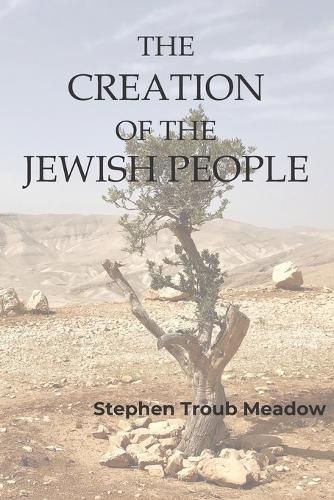Readings Newsletter
Become a Readings Member to make your shopping experience even easier.
Sign in or sign up for free!
You’re not far away from qualifying for FREE standard shipping within Australia
You’ve qualified for FREE standard shipping within Australia
The cart is loading…






The Creation Of The Jewish People challenges the traditional theories of the origin of the Hebrew people. Published posthumously, this book by author Stephen T. Meadow contends that the compiling of the Hebrew Bible stories was created by a merger of the history and practices of the clans, tribes, religious leaders, and Biblical authors. Their intent was to persuade the illiterate masses to adopt a system of universal law to resolve the class and ethnic conflicts among mutually hostile clans and tribes dwelling in the "Land of Israel." Meadow reveals how the Hebrew Bible stories united the often-hostile clans and tribes into one people following Universal Law and worshipping One God.. Thus, former enemies would henceforth regard themselves as "one family," with the same history, laws, customs, and religion. Meadow reveals how the Biblical message was conveyed to the masses by telling or acting out stories shaped by rituals and myths of the culture of the ancient Middle East, including Greece. The religious leaders altered or disguised long-standing themes composed of prebiblical mythical themes, and nature-based rituals, A major theme of the book is a discussion of the prebiblical practice of human sacrifice, the elimination of which was critical to the Biblical message.
$9.00 standard shipping within Australia
FREE standard shipping within Australia for orders over $100.00
Express & International shipping calculated at checkout
The Creation Of The Jewish People challenges the traditional theories of the origin of the Hebrew people. Published posthumously, this book by author Stephen T. Meadow contends that the compiling of the Hebrew Bible stories was created by a merger of the history and practices of the clans, tribes, religious leaders, and Biblical authors. Their intent was to persuade the illiterate masses to adopt a system of universal law to resolve the class and ethnic conflicts among mutually hostile clans and tribes dwelling in the "Land of Israel." Meadow reveals how the Hebrew Bible stories united the often-hostile clans and tribes into one people following Universal Law and worshipping One God.. Thus, former enemies would henceforth regard themselves as "one family," with the same history, laws, customs, and religion. Meadow reveals how the Biblical message was conveyed to the masses by telling or acting out stories shaped by rituals and myths of the culture of the ancient Middle East, including Greece. The religious leaders altered or disguised long-standing themes composed of prebiblical mythical themes, and nature-based rituals, A major theme of the book is a discussion of the prebiblical practice of human sacrifice, the elimination of which was critical to the Biblical message.